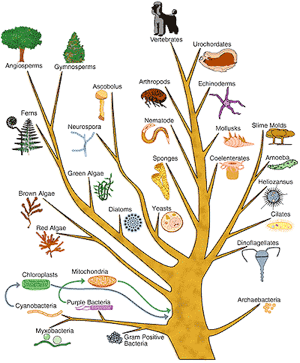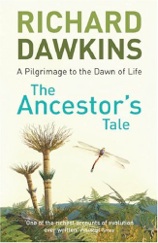earth story


perspectives on the story
of evolution
I do not wish to enter the creationist v/s evolutionary debate other than stating that I do not consider evolution to be against religious views. Rather I consider the biblical story to be metaphoric. Further I don’t believe that our sense or awareness of spirituality is dependent on a rational explanation. But more on that much later.
What I do wish to point out here is that many different timelines have been constructed; and all, every one of them, is inherently and inevitably a simplification. When we simplify we do so in order to reveal some regularities that are otherwise “hidden” in a mass of information. What is it that we wish to reveal?
For example branching trees of evolutionary history do not show the fits and starts of evolution. The standard definition of a species has to do with ability to interbreed; but this is not an on/off function; some crossings between varieties produce more offspring than others, and the percentage of those that can continue to breed also varies. Even now there are different “species” that have evolved in different places that can interbreed when brought together. I think the better image, rather than a tree, is something like a flat river delta where streams diverge and diverge, but sometimes come back together again.


Many images are designed, as for example the 48 hour clock in my illustrated talk, avove, with a simplification intended to emphasize how recent our tenure as human beings has been in the long geological history and in the development of living beings.
The timeline, below, changes scale as we get closer to the current time. Lynn Margulis calls this a “human centered” or “distorted scale” timeline. This is not inherently bad, it depends on what we want to think about. Indeed in our own lives we often see current events as more relevant than events decades ago, or things that happened in the time of our known forbearers.
In his book, “The Ancestor’s Tale” Richard Dawkins takes us on a epic story where he admittedly flirts with the temptation to seek reason and rhyme for everything as well as the vanity of the present in a conceit of hindsight. Nonetheless, going backwards in time, he spins a compelling and interesting tale, grounded in paleontological evidence. I particularly liked his use of the notion of “concestors” ... the most recent common ancestor for any species.



